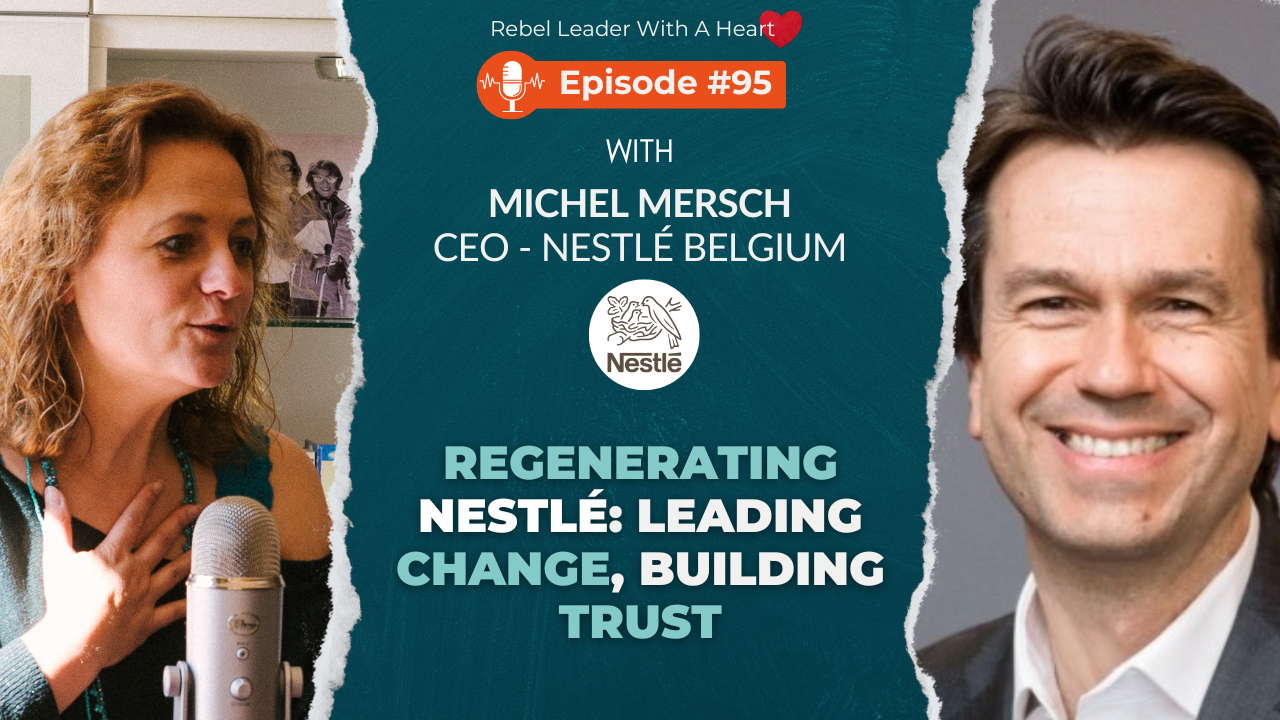
In a world marked by rapid changes and mounting challenges, the call for leaders to be both innovative and empathetic has never been louder. Michel Mersch, CEO of Nestlé Belgium, is a shining example of a leader who has risen to this challenge. Speaking on the Rebel Leader with a Heart podcast, Michel shares his journey of embedding regenerative leadership practices into the fabric of a global organization.
At its core, regenerative leadership is about creating systems that not only sustain but also restore and enrich. For Michel, this philosophy goes beyond profit. It means taking responsibility for the people, planet, and communities Nestlé impacts. His commitment stems from a profound belief that food has the power to do much more than nourish—it can foster joy, health, and connection.
Nestlé Belgium, under Michel’s leadership, has embraced this vision, striving to amplify the positive role food plays in society while addressing challenges like climate change and sustainable agriculture. But change is not without its hurdles.
Nestlé, as a global powerhouse, is no stranger to scrutiny. Michel openly acknowledges the company’s past mistakes but sees them as opportunities for growth. “Doing slightly better won’t be enough,” he asserts, emphasizing the need to think boldly and act decisively. For him, staying and leading change within a criticized system offers more impact than walking away.
Michel believes that leadership is about empowering others. Through tailored training programs and an emphasis on well-being, he seeks to equip his team to navigate a volatile world. Emotional intelligence plays a key role here. By fostering an environment where emotions can be expressed and embraced, Michel encourages a culture of authenticity and resilience.
However, he also highlights the delicate balance leaders must strike. While raising expectations and challenging employees to grow, he underscores the importance of avoiding burnout. “There is no development without pain,” Michel states, likening the process to building muscle—but pain must never turn into harm.
Michel’s approach to leadership also includes a pragmatic lens. In an era where companies must both deliver short-term results and prepare for long-term shifts, he stresses the importance of co-creation and adaptability. By involving teams in decision-making and prioritizing collective problem-solving, he fosters an organizational culture where everyone feels invested in the mission.
For those looking to make a difference, Michel offers two pieces of advice:
Michel’s leadership at Nestlé Belgium demonstrates that even in a complex, global organization, change is possible. By staying true to his values of humility, care, and collaboration, he is paving the way for a more sustainable and regenerative future—both within Nestlé and beyond.
This story is not just about one leader; it’s about the transformative power of purpose-driven leadership. As Michel says, “We need to dare to do things differently.”